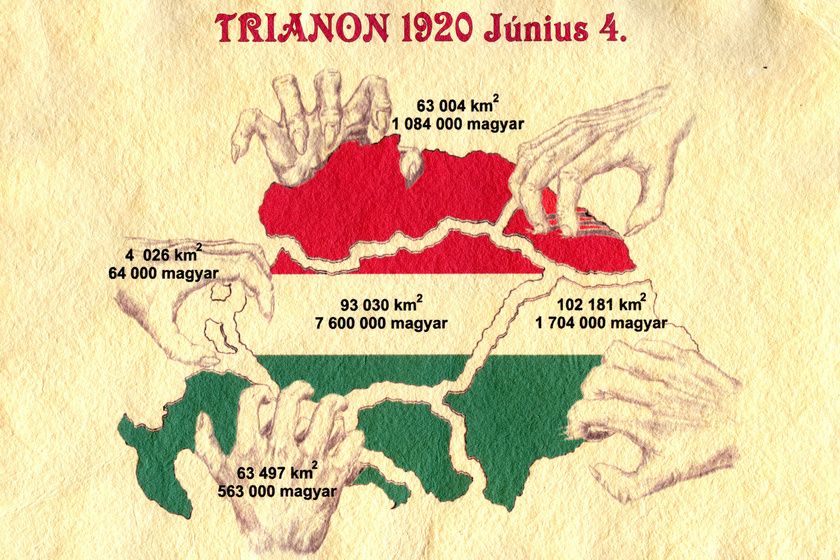National self-awareness and hope gave strength to Hungarians trapped outside the country’s borders after the Treaty of Trianon, state secretary of the Prime Minister’s Office Péter Szilágyi said at an event marking the National Day of Cohesion, the anniversary of the post-WWI Treaty of Trianon, in Porva, in western Hungary, on Saturday.
They held out hope that “our mother tongue, traditions and culture will not only be part of memory, but the reality of everyday life,” he said. Since 2010, the government has been working to fulfil this hope, to make it possible for Hungarians abroad to prosper in their homeland, and to strengthen the Hungarian identity of their communities, he added. Szilágyi recalled that on June 4, 1920, tens of thousands of people gathered in mourning clothes, the bells rang, factory alarms went off, the traffic stopped. Under the decision of the great powers, more than three million Hungarians were stranded outside of the country’s borders, he added.

Photo: www.facebook.com/100 évvel Trianon után
Thirteen years ago, the decision was taken that “we will not allow national borders to separate us from our compatriots,” Szilágyi said. Thanks to the government’s support to Hungarian schools abroad, 300,000 children a year receive quality education in their mother tongue in the Carpathian Basin and elsewhere in the world, he said. The government also provides support to students studying in public education in Hungary so that they can visit the Hungarian-inhabited areas of the neighbouring countries at least once, Szilágyi said.
“We must address the challenges of the 21st century as a strong nation”, Katalin Szili, chief advisor to the prime minister, said at another event marking the National Day of Cohesion, in Malinovo, in Slovakia, on Saturday. In the 103 years since the adoption of the Treaty of Trianon, Hungarians have proven that they are a united nation despite the dividing borders, Szili said. At the same time, neighbouring states must be made aware that the goal is not to change the current status quo, but rather to achieve a kind of cooperation that could create a possible new centre of gravity in today’s Europe, she said.
It must be shown, she said, that the Europe that we envision is not based on cosmopolitan thinking and outdated internationalism, but on what will mean national sovereignty and a Europe of nations in the future, Szili said. “If we talk about Trianon today, we must focus on what we can do amid the current challenges to be a strong resource for this Europe as a strong nation,” Katalin Szili said.
please make a donation here
Hot news
Manhunt begins: 7 foreign citizens caused a fatal accident on Budapest Airport road
Here is how Former PM Gyurcsány’s party wants to unseat PM Orbán
Astonishing VIDEO and PHOTOS of Budapest Airport’s ‘secret, silent’ Terminal 1
Hungarian methods used in the Dominican Republic against illegal migration?
Embarrassing fail: Police did not catch perpetrators of Budapest Louis Vuitton store despite their claim
PHOTOS: Hungarian Pavilion of the 60th Venice Biennale opens




1 Comment
Hungary needs to realize that it cannot afford to lose another war if the country is to survive. The country’s diplomatic relations today are somewhat .familiar to what it was like in 1920. It does not have good relations with any of the great powers. Hungary is not liked by the EU. Hungary is not liked by the USA. Hungary’s role in NATO is being questioned. Relations with Germany are not great. Hungary’s demographics are going in the wrong directions. The country’s armed forces are too small to defend the Country. With friends like Russia and China, who needs enemies?